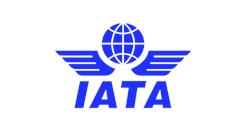Washington, DC, Feb. 11, 2014 – The National Business Aviation Association (NBAA) today welcomed passage by the U.S. House of Representatives of H.R.3578, bipartisan legislation to compel the Federal Aviation Administration (FAA) to follow the long-established rulemaking process before implementing any mandatory pilot-screening requirement for obstructive sleep apnea (OSA) as a condition for getting a medical certificate.
“The business aviation community thanks lawmakers for passing this measure seeking a fully transparent process for any consideration of OSA screening, including a mechanism for those in the industry – who have the most at stake from proposed regulatory action – to provide input on the matter,” said NBAA President and CEO Ed Bolen. “While sleep apnea is certainly an important health concern, it’s important that the agency weigh all factors on the issue, including analysis of data-driven justification, costs, benefits and other important criteria.”
The House measure, sponsored by House aviation subcommittee chairman Rep. Frank LoBiondo (R-2-NJ) and ranking aviation subcommittee member Rep. Rick Larsen (D-2-WA), passed by a voice vote.
Similar legislation (S.1941) was introduced in the Senate last month by Sens. Joe Manchin (D-WV) and James Inhofe (R-OK), members of the Senate General Aviation (GA) Caucus, and co-sponsored by Senate GA Caucus co-chairs Sens. Mark Begich (D-AK) and Mike Johanns (R-NE).
The FAA announced in November 2013 its plan to begin requiring OSA screening for pilots with a body mass index (BMI) of 40 or greater. Agency officials later suggested that the screening requirement would ultimately apply to additional pilots, regardless of the class of medical certificate, or the type of operation in which the pilot flies.
The agency’s attempt to force the new mandate alarmed NBAA, its Member companies and other aviation stakeholders. NBAA and other groups have continually worked to bring attention to the policy, and to prompt industry mobilization on the issue.
Most recently, entrepreneur Jamail Larkins, CEO of NBAA Member Company Ascension Aircraft, touched upon the OSA controversy in testimony he provided on Feb. 5 before a House Small Business Committee hearing focused on ways the FAA could better work with small companies like his.
In his written testimony, Larkins noted: “The vast majority of pilots weren’t provided an opportunity to learn of the FAA’s plans, or given a mechanism for providing feedback on the proposal. As a businessperson who has been a certificated pilot since my teenage years, this is a troubling development.” Read Larkins’s written Small Business Committee hearing testimony in its entirety.
Bolen met on Jan. 8 with LoBiondo to thank the chairman for his leadership on the issue and seek the congressman’s guidance on further work the industry can do to support the legislation. Read more about the Jan. 8 Capitol Hill meeting between Bolen and LoBiondo.
In testimony provided for a December aviation subcommittee hearing on aviation policy and planning, Bolen expressed his continuing concern about implementation of an OSA- screening requirement without first seeking comment from aviation stakeholders. Read the written testimony Bolen submitted to the aviation subcommittee in its entirety.
NBAA has also been urging people in the business aviation community to weigh in on the FAA’s proposal by using the Association’s Contact Congress resource to alert their House lawmakers to the issue, and urge them to support H.R.3578. Review the letter NBAA Members can send to their congressional representatives regarding the FAA's planned OSA policy.





